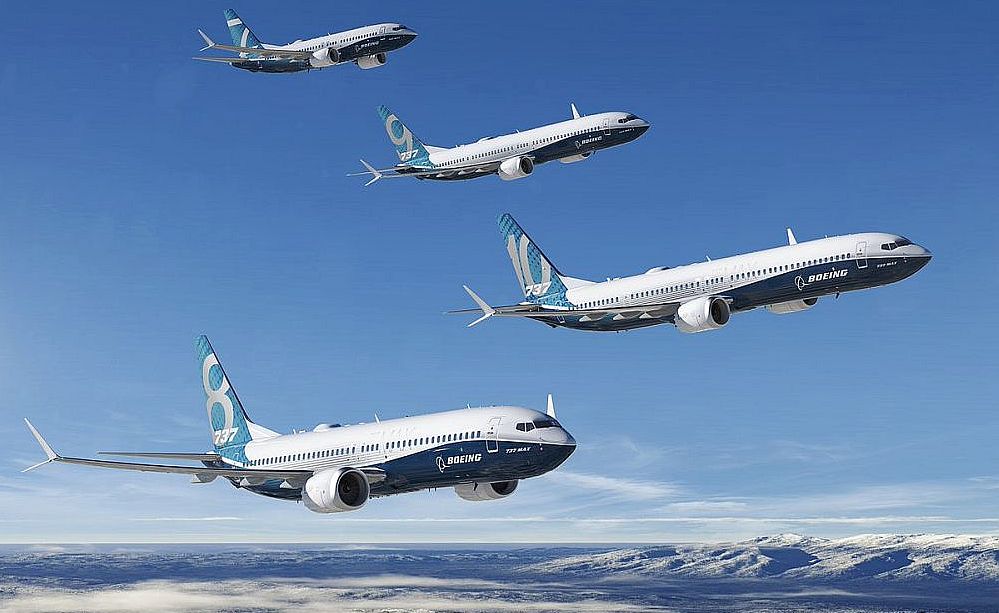Image source: Boeing
Last minute bookings for flights can be horribly expensive. Flights canceled due to inclement weather mean long waits and missed connections. Cancelling a few hours before the flight can be expensive. But what if you could book or cancel a flight through an app, like you do for cabs? Would the taxi aggregator model work in the aviation industry? Well, it worked for the hotel industry and it seems to be working for food delivery and restaurants. So why not aviation? The industry is very close to achieving that, but there are some challenges.
Before we delve deeper, we would like to remind you that certain models have already been tried, with success. There’s codeshare for example, wherein airlines form alliances and partnerships to share routes. The local routes to the final destinations (last leg of the journey) would be handled by the airline who has a base in the destination country. The advantage here is that you book one ticket, and pay a consolidated price for the full journey. For instance, if you wanted to fly to a smaller city in India, from say Abu Dhabi, you would take an Etihad flight from Abu Dhabi to Mumbai or New Delhi. For the onward journey, to say Ahmedabad, you’d change to Etihad’s partner/codeshare airline, which is Jet Airways.
Then there’s the private jet aggregator model, and a good example is Jetsuite.com. I read a nice article on this and would like to share it. Some travel websites and private jet companies offer last-minute deals on unused inventory. There are companies like NetJets that make private jet travel very affordable through a shared ownership model. So why buy the full jet when you can own a part of it and book a seat (or charter) in advance?
Websites like Expedia, Skyscanner, booking.com already aggregate inventory and sell tickets for airlines. When these websites came along, business at travel agencies was severely impacted. Fliers now log on to websites and do their own bookings, with ease. That’s another successful model.
THE CHALLENGE
Going a step beyond all this, we are thinking about the same experience that you have when booking a cab, through an app. Can that be done for flights?
Yes, but there are some challenges.
The dark secret is that the airline industry possessively holds on to legacy (read outdated) infrastructure.
The airline industry uses Computer Reservation Systems (CRS) such as SITA and Galileo. All the airlines in the world must interface their systems to either of these CRS’s. The dark secret is that the airline industry possessively holds on to legacy (read outdated) infrastructure. So interfacing these old systems to modern systems in the ‘cloud’ (no pun intended) — we mean powerful computers in data centres — is a challenge. If you want a user to book a flight on demand, through an app, then it is crucial for all systems to be synchronized in near real-time. We have heard of two tickets being sold for the same seat on the same flight at the same date and time, on the same airline. Incidents like that happen because systems are not in sync.
It would take a massive effort to modernise all the CRS’s in the world, and to interconnect every airline’s reservation system with a centralised system in the cloud.
If you want a user to book a flight on demand, through an app, then it is crucial for all systems to be synchronized in near real-time.
ALLIANCES
But the industry is indeed a step closer to achieving that. There are airline alliances such as Star Alliance and One World. Each alliance has more than a dozen member airlines. Airlines within an alliance already have code share arrangements with each other; technically, an aggregator app can be built on top of that, to allow a user to fly any of those airlines, provided it is within the route that one wants to take.
To be profitable, an airline must fill up all its seats for a flight. The industry has its own metrics to measure efficiency and profitability. For instance, Revenue Per Available Seat Mile (RASM). It is a unit of measurement that is used to compare the efficiency of various airlines. It is obtained by dividing operating income by available seat miles (ASM). Generally, the higher the RASM, the more profitable the airline in question.
So code sharing and alliances are a win-win for both airlines and air travellers.
We look forward to the day when it would be possible to book an air ticket on demand, without surge pricing and inflated rates. It should also be easy to cancel a ticket and get a full refund, without cancellation charges.
Once that model is in place, the industry can explore other models, just as Uber and AirBnB did. We have car pooling and a choice of formats for taxi’s. Expect something similar for airlines.
Related story: It’s time for the Uberisation of airlines
The writer has been an aviation enthusiast since the age of 12.
For article syndication enquiries write to [email protected]









